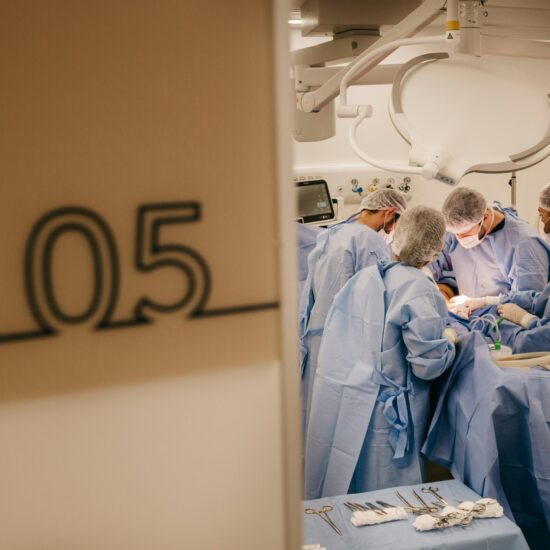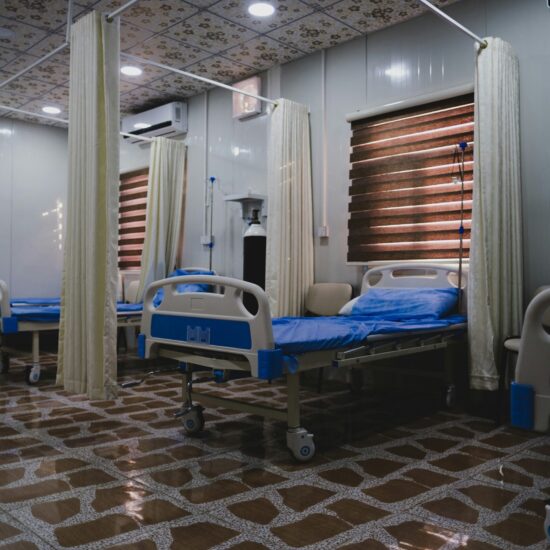
Theresa Brown, RN, is an oncology nurse and one of the very few nationally prominent nurse-writers in the areas of nursing and health care. She is a member of the Center for Health, Media and Policy’s National Advisory Council.
It all started with a tweet. I’m a somewhat reluctant user of social media, but I’m giving it more of a go lately, and my tweet in question was this: “#nihmim12 Day 2 and no mention of nurses EVER. RNs do the bulk of patient education in the hospital, but we don’t even merit a nod?” The hashtag “nihmim12” denotes the Medicine in the Media workshop sponsored by the National Institutes of Health and held this October in Potomac, MD. Having just completed the course, I can highly recommend it, but the issue of nurses’ absence in the curriculum requires a closer look.
My twitter post got the attention of Lisa Schwartz and Steve Woloshin, the engaged and thoughtful MDs who organize the course curriculum and do the bulk of the teaching. They were genuinely interested in my perception that nurses’ work needs to be represented in the course in order to render the actual working of health care accurately. I promised them I would look through the course PowerPoint slides with an analytical eye and get back to them with more specific comments about including nurses, and I plan on doing that.
However, I also told them that my indignant tweet came in response to an attempt earlier in the day to talk with one of the conference organizers about including nurses in the course. I won’t go into particulars, because maybe this person was just at the end of a long day and had heard one complaint too many, but I was told that the physicians who were teaching the course could not be expected to “comment on the nurses’ experience.”
The tone struck me as condescending, but impressions of verbal tone can easily reflect the prejudices of the hearer, so let’s focus instead on the content of what was said, specifically the phrase, “the nurses’ experience.” Both in the hospital and in different outpatient settings, nurses provide the bulk of patient education and answer questions about treatment options. For that reason it’s legitimate to want nurses to be included in discussions of how medical information is portrayed by the media. The issue is not nurses’ subjective experience, but an objective accounting of the job we do every day, and I tried to explain that idea when I talked with Lisa and Steve.
The next day of the Medicine in the Media conference, though, during a meal break, a physician-journalist who was also a conference attendee disagreed with my view that nurses had a place in the workshop. When I said that nurses, like MDs, want to offer patients scientifically validated information and care, the response I got was, “Maybe the nurses where you work are different,” but in this physician’s hospital none of the nurses wanted to learn and they were all lazy.
Of course I disagreed with this doctor’s characterization of nurses, but just as tone was not important in the dismissive statement about nurses made the day before by the conference organizer, the content of this MD’s argument actually matters less than the fact that the comment was made at all.
Mulling the conversation later that evening I struggled to imagine another type of professional situation where, even within an established hierarchy, someone from a traditionally dominant discipline would feel entitled to tell a member of an associated discipline that all its members were ignorant and had no work ethic. Do principals talk this way to teachers? Senior partners in law firms to newly minted attorneys? Tenured faculty at universities to junior faculty? I doubt very much that it happens in public, professional settings.
The late Steve Jobs was notorious for giving scathing rebukes to Apple employees when he found their design standards less than ideal. But my understanding is that he harshly criticized their work, not them personally. On the other hand, the television show “Mad Men” reminds us that working women were treated as less than equal to white men just fifty years ago, regardless of the women’s accomplishments or abilities.
In the “Mad Men” vein, some doctors feel free to act insultingly toward nurses and it happens in all kinds of settings, not just when we rub elbows at workshops. The problem with such behavior is that it makes true collaboration between nurses and doctors very difficult, and that could lead to worse care for patients since good communication is crucial for good care. Of course there are ignorant lazy nurses, just like there are arrogant doctors, and vice versa, but it almost goes without saying that labeling nurses as generally incompetent devalues the work we do and its importance for patients.
In the end, I realized that these two anecdotes from the Medicine in the Media workshop shouldn’t be separated: that viewing nurses as intellectually indifferent shirkers is the flip side of eliding nurses from discussions of how our health care system actually works. It becomes too easy to dismiss and demean nurses if in the narrative of health care we are so often already not there.
Theresa Brown











Vincy Thomas / November 8, 2012
The majority of patient teaching is done by nurses in inpatient and outpatient settings and that should be credited. Nurses are equal partners or more in the healthcare and that should be recognized by all.
/
Vicki Krohn, MSN, RN / December 9, 2012
The adversarial relationship between doctors and nurses that is often commonly found in hospital settings can be attributed to these types of attitudes. Until doctors have an understanding of the work of nurses (about which most are ignorant), I am afraid this will be the prevailing theme in health care. There is an improved sense of how these attitudes impact negatively on patient safety so my hope is we will see an improvement in the next few years. What really needs to happen is a change in Medical training that requires interns to spend at least a shift with an experienced RN before they start a residency. This would give them a taste
of what nursing is about which is more than they get now. As always, nice commentary!
/